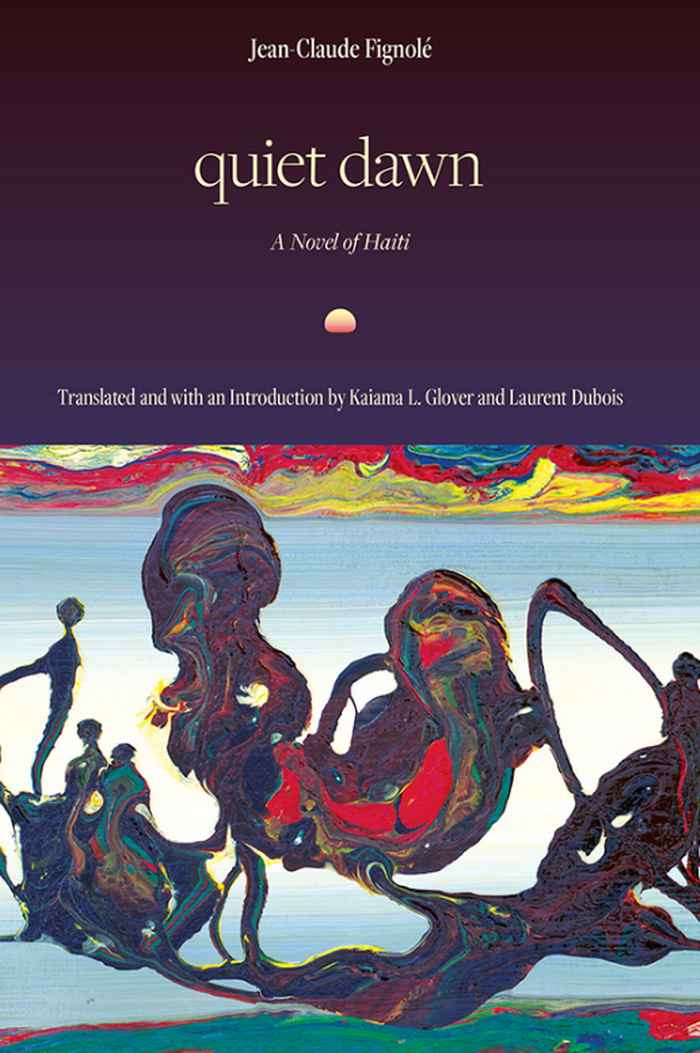Launching the Translation of Jean-Claude Fignolé’s Quiet Dawn, a novel about the Haitian Revolution
- Date
- 20 May 2025

RSVP HERE: https://docs.google.com/forms/d/e/1FAIpQLSdie8pKWny5ZR0VEIB-aAGtPK6ArO_YP7wv5BN9siB0BUZjFw/viewform
Kaiama L. Glover (Professor of Black Studies and French, Yale University) and Laurent Dubois (John L. Nau III Bicentennial Professor in the History & Principles of Democracy, University of Virginia), leading scholars of Africana Studies, join us to launch their English translation of the late Jean-Claude Fignolé’s 1990 novel.
They will be joined in conversation by archeologist Sony Jean, an archeologist of the magnificent Citadelle, a castle built by King Christophe in Cap Haitian in the early 1800s, Francio Guadeloupe, Special Professor of Public Anthropology of Kingdom Relations at the University of Amsterdam, and Anastasia Arsenis, Graduate Student in History at the University of Utrecht. The event is moderated by Alessandra Benedicty-Kokken, Universitair Docent at Literary and Cultural Analysis.
Jean-Claude Fignolé’s Spiralist novel evokes complex temporalities of ancestral knowledge, moving between the late twentieth century and turn of the eighteenth century. Duke University Press writes that “the swirling, multilayered novel provides intimate portraits of an eighteenth-century slaveholder, his wife, and their enslaved laborers set against the devastating backdrop of enslavement and revolution… interwoven with that of a present-day French nun. One of the few contemporary Haitian novels to explicitly grapple with Haiti’s revolution, Quiet Dawn foregrounds issues of race, power, the continuing legacy of historical trauma, and the unresolved tensions between the past and present.” The introduction may be read here.
With special thanks to Amsterdam School for Cultural Analysis, NWO funded Re/Presenting Europe Consortium, the Research Center of Material Culture at het Wereldmuseum, and Duke University Press. With special thanks to:
Rachel Gillett and Wayne Modest as well as Olombi Bois, Isabella Hall Allen, Eloe Kingma, Ilaria Obata, and Carine Zaayman.